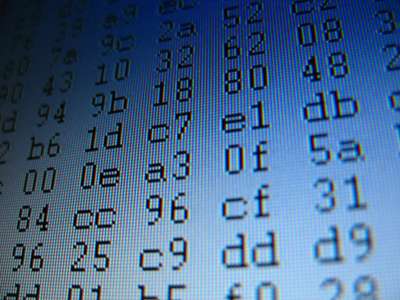How Quantum Cryptology Works
The keys used in modern cryptography are so large, in fact, that a billion computers working in conjunction with each processing a billion calculations per second would still take a trillion years to definitively crack a key [source: Dartmouth College]. This isn't a problem now, but it soon will be. Current computers will be replaced in the near future with quantum computers, which exploit the properties of physics on the immensely small quantum scale. Since they can operate on the quantum level, these computers are expected to be able to perform calculations and operate at speeds no computer in use now could possibly achieve. So the codes that would take a trillion years to break with conventional computers could possibly be cracked in much less time with quantum computers. This means that secret-key cryptology (SKC) looks to be the preferred method of transferring ciphers in the future.
But SKC has its problems as well. The chief problem with SKC is how the two users agree on what secret key to use. If you live next door to the person with whom you exchange secret information, this isn't a problem. All you have to do is meet in person and agree on a key. But what if you live in another country? Sure, you could still meet, but if your key was ever compromised, then you would have to meet again and again.
It's possible to send a message concerning which key a user would like to use, but shouldn't that message be encoded, too? And how do the users agree on what secret key to use to encode the message about what secret key to use for the original message? The problem with secret-key cryptology is that there's almost always a place for an unwanted third party to listen in and gain information the users don't want that person to have. This is known in cryptology as the key distribution problem.
It's one of the great challenges of cryptology: To keep unwanted parties -- or eavesdroppers -- from learning of sensitive information. After all, if it was OK for just anyone to hear, there would be no need to encrypt a message.
Quantum physics has provided a way around this problem. By harnessing the unpredictable nature of matter at the quantum level, physicists have figured out a way to exchange information on secret keys. Coming up, we'll find out how quantum physics has revolutionized cryptology. But first, a bit on photons.
Hi! I am a robot. I just upvoted you! I found similar content that readers might be interested in:
http://science.howstuffworks.com/science-vs-myth/everyday-myths/quantum-cryptology2.htm
Hello. Has quantum physics affected medicine? Since matter CAn be changed at sub atomic level. Thanks
@nzekwepatrick
Good Job!
Keep posting!
Thanks
Nice post! I will follow you from now on.
Congratulations @nzekwepatrick! You have received a personal award!
Click on the badge to view your Board of Honor.
Do not miss the last post from @steemitboard!
Participate in the SteemitBoard World Cup Contest!
Collect World Cup badges and win free SBD
Support the Gold Sponsors of the contest: @good-karma and @lukestokes
Congratulations @nzekwepatrick! You received a personal award!
You can view your badges on your Steem Board and compare to others on the Steem Ranking
Vote for @Steemitboard as a witness to get one more award and increased upvotes!